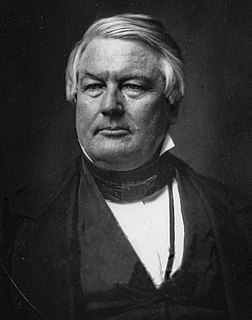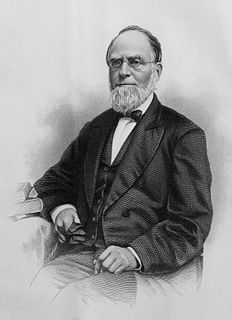A Quote by Millard Fillmore
The man who can look upon a crisis without being willing to offer himself upon the altar of his country is not for public trust.
Related Quotes
The hundred-point man is one who is true to every trust; who keeps his word; who is loyal to the firm that employs him; who does not listen for insults nor look for slights; who carries a civil tongue in his head; who is polite to strangers without being fresh; who is considerate toward servants; who is moderate in his eating and drinking; who is willing to learn; who is cautious and yet courageous.
Such was the will of the Father that his Son, blessed and glorious, whom he gave to us, and who was born for us, should by his own blood, sacrifice, and oblation, offer himself on the altar of the cross, not for himself, by whom "all things were made," but for our sins, leaving us an example that we should follow his steps.
He was a foe without hate; a friend without treachery; a soldier without cruelty; a victor without oppression, and a victim without murmuring. He was a public officer without vices; a private citizen without wrong; a neighbor without reproach; a Christian without hypocrisy, and a man without guile. He was a Caesar, without his ambition; Frederick, without his tyranny; Napoleon, without his selfishness, and Washington, without his reward.
When a teacher of the future comes to point out to the youth of America how the highest rewards of intellect and devotion can be gained, he may say to them, not by subtlety and intrigue; not by wire pulling and demagoguery; not by the arts of popularity; not by skill and shiftiness in following expediency; but by being firm in devotion to the principles of manhood and the application of morals and the courage of righteousness in the public life of our country; by being a man without guile and without fear, without selfishness, and with devotion to duty, devotion to his country.
He who loathes war, and will do everything in his power to avert it, but who will, in the last extremity, encounter its perils, from love of country and of home--who is willing to sacrifice himself and all that is dear to him in life, to promote the well-being of his fellow-man, will ever receive a worthy homage.
Whoever is wise is apt to suspect and be diffident of himself, and upon that account is willing to "hearken unto counsel"; whereas the foolish man, being in proportion to his folly full of himself, and swallowed up in conceit, will seldom take any counsel but his own, and for that very reason, because it is his own.
When you come back to God for pardon and salvation, come with all you have to lay all at his feet. Come with your body, to offer it as a living sacrifice upon His altar. Come with your soul and all its powers, and yield them in willing consecration to your God and Saviour. Come, bring them all along-everything, body, soul, intellect, imagination, acquirements-all, without reserve.
There exists an infinite, eternal Being, subsisting of himself, who is one without being alone; for he finds in his own essence relations whence, with the necessary movement of his life, results the absolute plenitude of his perfection and his happiness. A Being unique and complete, God suffices to himself.
Needless to say, under either system [socialism or fascism], the inequalities of income and standard of living are greater than anything possible under a free economy -- and a man's position is determined, not by his productive ability and achievement, but by political pull and force. Under both systems, sacrifice is invoked as a magic, omnipotent solution in any crisis -- and "the public good" is the altar on which victims are immolated.
































